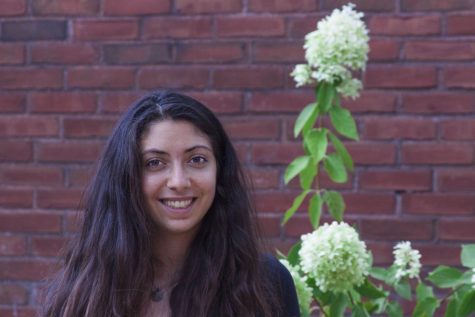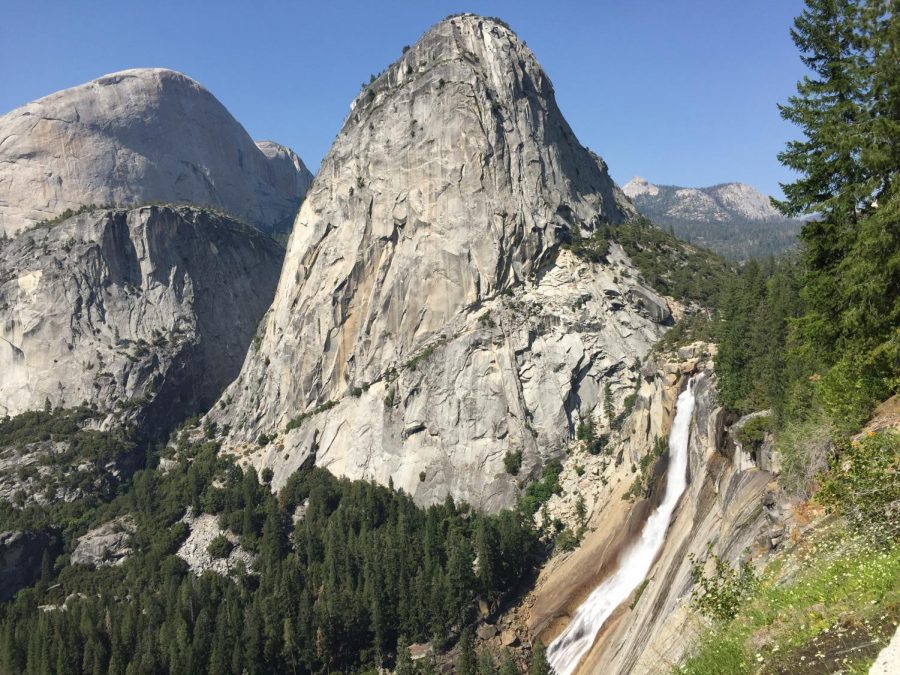Faccenda: Don’t shy away from physical challenges
Pushing yourself can have big rewards. Seeing this beautiful view of Yosemite National Park would not have been possible without a tough climb.
Growing up, I was surrounded by siblings who were always trying to push their bodies to the breaking point. A storm during the yearly beach vacation was an opportunity to see who was fearless enough to take the ocean kayaks out in 20-foot waves. During a family trip to Maine, we biked over 30 miles in the pouring rain and 50-degree weather, because everyone “didn’t want to waste a day just because of some rain”.
For most of my childhood, I was always the odd one out. I loved skiing, kayaking, biking and hiking as much as the rest of my family, but I didn’t understand why my siblings always seemed to be competing in some physical toughness competition. When it rained at the beach, I was happy to visit the aquarium and call it a day. And I was miserable during that bike trip.
My siblings were competitive by nature, but I realized at some point that it wasn’t competition driving them to do these (relatively) extreme things. What kept them going in subzero temperatures and 100-degree heat was pure enjoyment of physical challenges. They truly loved testing their limits.
I resisted this mindset for most of my life. I thought it was stupid and unsafe, and I just didn’t enjoy straining myself. Still, I often ended up doing the same crazy things my siblings did. I didn’t want to be the family wimp. Strangely, it wasn’t until I got to college that I started to appreciate this side of my childhood.
The ultimate catalyst in changing my mind? Three words: winter in Cleveland.
I’d never experienced anything like it. I’m an avid runner, and when winter rolled around my freshman year, I felt like the world was playing a cruel joke on me. How was I supposed to go for a run on days when I could barely walk outside without wind, sleet and ice trying to kill me? Treadmills proved unbelievably tedious, and I almost resigned myself to a winter of inactivity and complaining.
But I couldn’t shake the thought of my siblings’ voices in the back of my head, laughing at me for being such a baby, urging me to push myself and to try harder. So on the next hostile winter day, I put on as many jackets as I could and did the unthinkable. The run was awful. It felt like nature was attacking me. But afterwards, I felt like I was on top of the world. By the end of the winter, a part of me actually started to enjoy running in snowstorms.
Ever since that winter, I have been a firm believer in the value of physically pushing yourself.
The moment you embrace physical challenges is when you begin to strengthen your body and mind. When you purposely spend time being uncomfortable一cold, wet, tired, hot, scared一other situations become much easier to tackle. A job interview seems like nothing when you’ve climbed a few mountains. That’s an oversimplification, of course, but in my experience, my career and academic goals have seemed less intimidating since I decided to welcome a more adventurous mindset. Once you get used to stepping outside of your comfort zone, it doesn’t seem so scary. And even if it is, you might find that you start to love the feelings of fear and discomfort. If fear doesn’t scare you, nothing can.
By opening yourself up to new and difficult experiences, you’ll also learn much more than you ever thought possible. You’ll expand your skill set: Maybe you’ll learn how to ski over moguls or handle a sailboat. Even more importantly, you might find reserves of strength and willpower that you didn’t think you had.
“Pushing yourself” has different meanings for everyone. It might mean running a mile, or it might mean running a marathon. Make an effort to physically exert yourself and deal with discomfort. You might surprise yourself with how much you enjoy it.
Alexandra Faccenda is a third-year geology major and serves as The Observer’s opinion editor.

Alexandra Faccenda is a fourth-year student majoring in geology. She currently works as an undergraduate researcher studying planetary interiors, but after...


